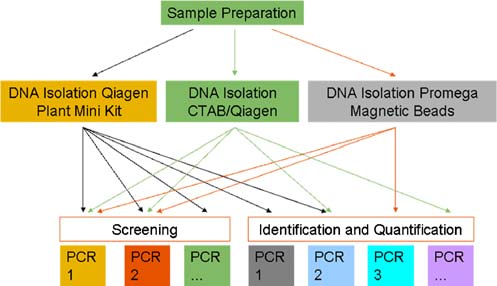What is Non-GMO? What are genetically modified foods?
Below are several documented findings showing health dangers from GM foods.
GM crops risks and GM food hazards
GM corn and Roundup herbicide cause tumors and organ damage
Rats fed Monsanto’s GM corn NK603 and tiny amounts of Roundup herbicide over a two-year period—the longest ever feeding study involving a GM food—developed severe liver and kidney damage, disturbance to pituitary gland function, and hormonal disruption. Additional findings included increased rates of large tumors and premature deaths. The study was first published in the journal Food and Chemical Toxicology but was later retracted due to pressure by pro-GMO scientists and groups. It was later republished in Environmental Sciences Europe.
-
GM-fed pigs suffered severe stomach inflammation and heavier uteri
A study found that pigs fed GM corn and soy over 22.7 weeks suffered more severe stomach inflammation than pigs fed a non-GMO diet. GM-fed females had on average a 25% heavier uterus than non-GM-fed females, a possible indicator of disease that requires further investigation.
-
GM corn altered blood biochemistry, damaged organs, and caused potential effects on male fertility
Rats fed the GM Bt corn MON810 for 45 and 91 days showed differences in organ and body weights and in blood biochemistry, compared with rats fed a non-GMO variety grown side-by-side in the same conditions. The authors noted that the changes could indicate “potential adverse health/toxic effects,” which needed further investigation.
-
GM potatoes caused damage to mice intestines
Mice fed a diet of GM Bt potatoes showed abnormalities in the cells and structures of the small intestine, indicating mild damage to the intestines. A control group of mice fed non-GMO potatoes containing a naturally occurring Bt toxin showed no abnormalities. The test shows that the Bt toxin does not break down in digestion, as GMO proponents claim.
-
GM corn toxin found in blood of pregnant women
A study conducted in Canada detected significant levels of the insecticidal Bt corn protein, Cry1Ab, circulating in the blood of pregnant women and in the blood supply to unborn fetuses. This study again shows that the Bt toxin does not break down in digestion, as GMO proponents claim.
-
GM soybeans caused liver problems in mice
A long-term feeding study conducted by scientists in Italy found health problems, including acute signs of aging in the liver, in mice fed GM glyphosate-tolerant soybeans

Non-GMO Certification is a risk based standard which places products into three categories.
Low Risk
Medium Risk
High Risk
Medium and high risk products will be required to undergo testing by both the certified operator and by OSSOPCA for verification purposes.
Labelling
The non-GMO logo can only be used in conjunction with the Australian Certified Organic ‘bud’ logo on certified organic and certified non-GMO products.
Provision and use of the logo is subject to approval by the OSSOPCA office, as per the label and style guide.
Application Process
Operators wishing to use the OSSOPCA Non-GMO logo must submit an application for OSSOPCA for this program.
The application will be reviewed by the Certification Office, including product verification;
On successful review of the application, an onsite inspection to verify compliance will occur;
The audit report will be reviewed by the OSSOPCA office and a decision made on certification, if certification is granted, a certificate and logo is issued for use.
GMO Testing
To obtain and maint non-GMO certification, testing products in the medium and high risk categories is mandatory to ensure compliance. Please contact the OSSOPCA office for further details regarding testing.

